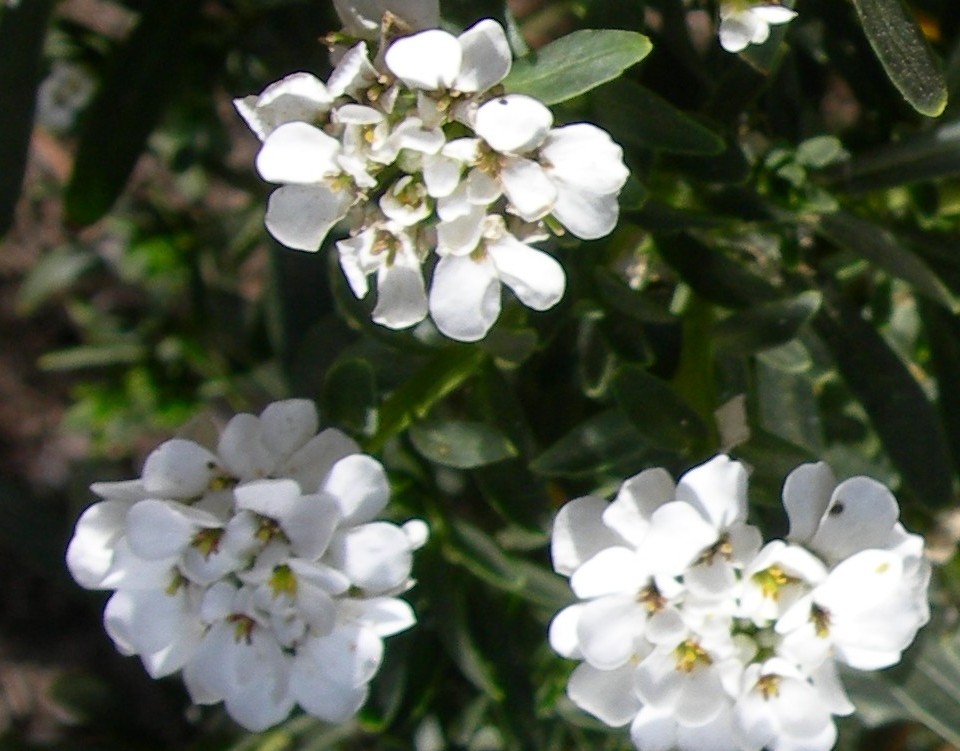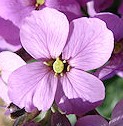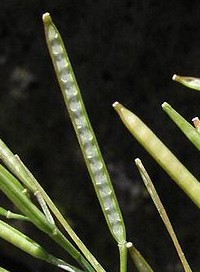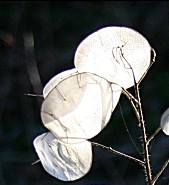 Members of the mustard family include mostly herbaceous annuals, biennials and perennials and a few wood shrubs. Members include cabbage, broccoli, cauliflower, turnip, radish, horseradish, and watercress as well as some very attractive garden plants such as sock (Matthiola), candytuft (Iberis), wallflower (Erysimum) and honesty (Lunaria) The botanical names for the family are Cruciferae, meaning “cross-bearing” and Brassicaceae.
Members of the mustard family include mostly herbaceous annuals, biennials and perennials and a few wood shrubs. Members include cabbage, broccoli, cauliflower, turnip, radish, horseradish, and watercress as well as some very attractive garden plants such as sock (Matthiola), candytuft (Iberis), wallflower (Erysimum) and honesty (Lunaria) The botanical names for the family are Cruciferae, meaning “cross-bearing” and Brassicaceae.
Remembering that the mustard family has also been known as Cruciferae, meaning “cross-bearing” is a big aid to identifying these plants because it reflects one of the major characteristics of the family.
The major characteristics that can be seen in the field are:
 Four petals form the shape of a cross, and X, or an H
Four petals form the shape of a cross, and X, or an H
 |  |  |
 Six stamens, four of which are tall, two short
Six stamens, four of which are tall, two short
 |
 The seed pods (silique) open on two sides to reveal seeds and a membrane in the middle.
The seed pods (silique) open on two sides to reveal seeds and a membrane in the middle.
 |  |
There are over 350 genera and 3,700 species in the mustard family and over 55 genera in North America. Most species are weedy and all are edible. They are common in disturbed soil where they can sprout and grow quickly.
